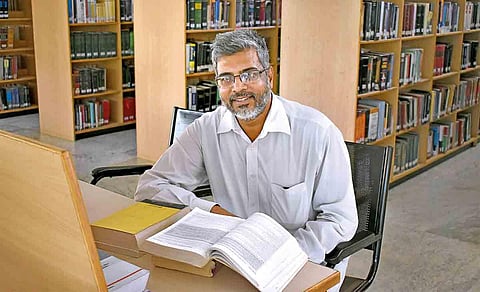

BENGALURU: The education sector in general, and school education, in particular, was badly affected due to the Covid-19 outbreak. Schools were shut from March 14, 2020. As a result, learning in schools was at a standstill. When the pandemic worsened, the traditional classroom learning process was replaced by digital online platforms. Due to the digital divide in the State, the learning process broadened the gap between the haves and have-nots, urban and rural, girls from disadvantaged communities, disadvantaged groups, including children with disabilities, further accelerating and sharpening pre-existing inequality and discrimination within the school system.
This unexpected crisis derailed the learning process in the state, affecting nearly 10 million children. As per studies, children in public schools lost many competencies learnt in previous grades, especially in language and math, resulting in deep learning loss. Rural children, especially girls, bear the brunt. The digital divide, combined with no access to physical learning, has pushed a number of children out of school, jeopardising their fundamental right to education. As a result, the problem of child labour, child bonded labour, child marriage, child abuse, child trafficking, child begging etc, increased many fold by reversing all concerted efforts made to address these issues in the last two-three decades.
In this context, there were a lot of expectations from the State Budget, especially for public school education to address the learning crisis and challenges to children. Moreover, this is the first budget presented by the Chief Minister after the National Education Policy (NEP) was launched by the Centre. The state government was overambitious and become exemplary in implementation of the NEP. Hence, a clear financially-backed road map for NEP was expected.
However, the Chief Minister poured cold water on these expectations of poor children, parents and academia. Though there are a few negligible proposals for providing infrastructure, sanitary facilities and furniture to schools and pre-university colleges (overall Rs 350 crore), it lacks a holistic approach to strengthen public education.
The education sector has received a budget of Rs 29,688 crore for 2021-22, down by Rs 80 crore from 2020-21. In terms of overall percentage, education’s share decreased from 12.5% in 2020-21 to 12% in 2021-22. The Budget is silent on Covid-19 response measures for education, when nearly 10 million children have lost an entire year because of the pandemic.
The absence of concrete and planned measures to bring school education out of a pandemic crisis raises the larger question of whether school education is really a priority for the ruling government. The ambitious plan of the state government to implement the NEP without substantial financial resources seems doomed to failure. The budget fails to offer any financial road map for NEP implementation. Ironically, it confines itself to creating awareness on NEP for education staff.